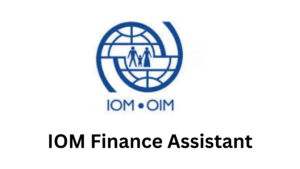
Table of Contents
Project management skills are valuable for professionals at any level, not just for those with “manager” in their title. When you apply project management techniques to your tasks, you can organize your work better, meet deadlines more consistently, and improve overall productivity. Here’s how you can harness project management skills to become more efficient in any role.
1. Define Clear Goals and Objectives
Every successful project starts with clear goals. Take time to understand what you’re trying to achieve, whether it’s completing a report, organizing an event, or leading a cross-departmental project. Clearly defining your objectives will help you focus your efforts and allocate time and resources effectively.
Practical Tips:
- Break down your goal into specific, measurable objectives.
- Write down what success looks like to keep yourself aligned with the end goal.
- Refer back to your objectives regularly to ensure you’re on track.
2. Prioritize Tasks with a Work Breakdown Structure
A work breakdown structure (WBS) is a popular project management tool that helps you divide a large project into smaller, manageable tasks. This approach can be applied to any workload to make tasks more manageable. A WBS allows you to prioritize activities, delegate responsibilities if necessary, and keep track of progress more efficiently.
Practical Tips:
💬 Get Paid in Dollars Just by Chatting With Lonely People
Imagine earning daily dollar income from anywhere in the world — no degree, no experience, no interviews — just your phone or laptop.
People are getting paid simply to chat, listen, and keep others company online. This short ebook reveals:
- ✔ Legit platforms that pay in USD
- ✔ How Africans can register & withdraw successfully
- ✔ What to say to keep conversations paid
- ✔ How beginners start with zero experience
Instant download • Works worldwide • Beginner-friendly
- Identify the major tasks and then break them down into smaller steps.
- Assign priorities to each task based on deadlines or importance.
- Keep a checklist to monitor your progress as you complete each step.
3. Set Realistic Timelines and Deadlines
Effective project management involves setting realistic timelines. By estimating how much time each task requires, you can set achievable deadlines and manage your schedule. Timelines help you avoid last-minute rushes and prevent projects from dragging on indefinitely.
Practical Tips:
- Use a tool like Google Calendar, Trello, or Asana to map out your tasks and deadlines.
- Add buffer time to account for unexpected delays or adjustments.
- Regularly review your timeline and adjust as needed to stay on track.
4. Utilize Project Management Tools and Software
Project management software like Trello, Asana, Monday.com, or Microsoft Project can streamline your workflow by allowing you to organize, track, and manage tasks in one place. These tools enable you to set deadlines, assign tasks, collaborate with others, and receive reminders—helping you stay on top of your responsibilities.
Practical Tips:
- Choose a tool that suits your style; some tools are better for individual work, while others are ideal for team collaboration.
- Create boards, lists, or task cards to organize and track your projects.
- Take advantage of features like notifications, task assignments, and progress tracking.
5. Communicate Effectively with Stakeholders
Effective communication is crucial to project success. Whether you’re working independently or in a team, keeping relevant stakeholders informed about progress, potential issues, and milestones can help prevent misunderstandings and delays. Practicing open communication also encourages collaboration and builds trust with colleagues and managers.
Practical Tips:
- Use status reports or updates to keep your manager informed.
- Schedule regular check-ins with your team to discuss progress and challenges.
- Be clear and concise when explaining your project’s needs or potential issues.
6. Monitor Progress and Adjust as Needed
Monitoring progress is essential in project management, as it allows you to assess how well you’re meeting your goals and deadlines. Regularly checking your progress enables you to identify any deviations from your plan early on and make adjustments to stay on course. This proactive approach minimizes disruptions and keeps projects moving smoothly.
Practical Tips:
- Set milestones to track your progress and celebrate small wins.
- Regularly review your checklist or project board to assess what’s completed and what’s pending.
- Be open to adjusting timelines or approaches if you notice bottlenecks or delays.
7. Conduct a Post-Project Review
Once you complete a project or reach a major milestone, take time to reflect on what went well and what could be improved. A post-project review helps you analyze the success of your approach, identify areas for improvement, and apply these lessons to future projects. This reflective practice is invaluable for continuous growth and efficiency.
Practical Tips:
- Make note of any challenges you faced and how you overcame them.
- Identify any time-management techniques that worked well for you.
- Write down any lessons learned to help you improve in future projects.
Final Thoughts
Project management skills can be incredibly beneficial, even if you’re not managing a large team or complex projects. By adopting these techniques, you can stay organized, meet deadlines consistently, and approach tasks with a strategic mindset. Whether you’re managing your personal workload or coordinating with colleagues, these skills will make you more effective, efficient, and prepared to handle any project that comes your way. Embrace these project management methods, and watch as they elevate your productivity and career success.
For more information on this, read this article from INDEED
See also:
Tokyo University Amgen Scholars Program 2025: Apply Now!
The Letten Prize 2025 for Researchers: Apply Now!
World Trade Organization Internship Program 2025
Apply for the $5,000 Pathways Access Scholarship at Swinburne University 2025
🔥 Want to Make Money Online the Right Way?
Discover how smart people are quietly earning with AI, Email Marketing, CPA, LinkedIn, Online Teaching & Content Creation.
This is not theory — it’s a step-by-step system.
👉 Get the Ebook Now










